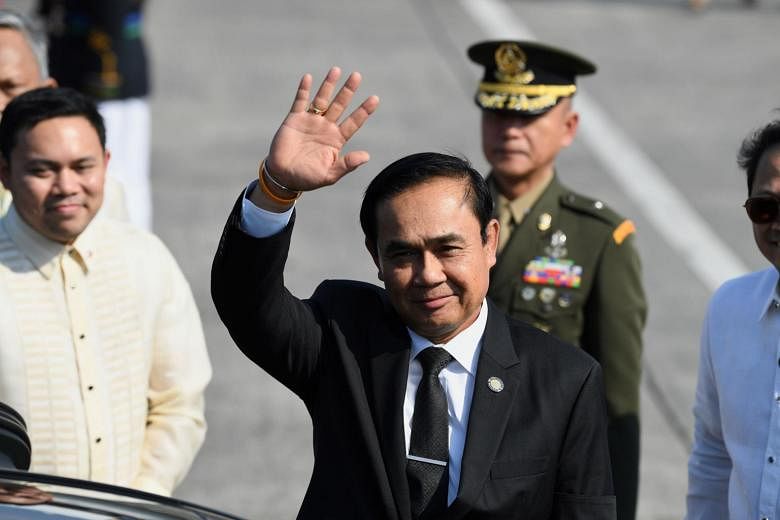BANGKOK (AFP) - Thailand's junta chief on Tuesday (June 13) said he would invoke his 'absolute powers' to clear hurdles holding up a multi-billion dollar deal with China to build a high-speed railway.
The two countries, who are increasingly close friends, have agreed to lay the track that will ultimately cut through the Laos' border to Thailand's south.
Beijing's big plan is to link the southern Chinese city of Kunming by rail with Singapore and work has already begun on the line in Laos.
But the deal with Thailand has been beset by delays, including a tussle over the initial loan terms from Beijing.
More recently, construction has been set back by a Thai law limiting the number of foreign nationals who can work as engineers and architects on mega-projects inside the kingdom.
On Tuesday, Prime Minister Prayut Chan-o-cha said he would force through the deal, if necessary using Article 44 - a self-granted law dubbed an absolute power by critics.
"The government must solve the problem otherwise it will hit snags or legal issues and it will look like the government can't achieve anything," he told reporters.
Article 44 is a controversial power Prayut granted himself to make any executive decision in the name of national security.
He has used the law on a raft of issues, from sacking officials to raiding a controversial temple, to deputising all soldiers with policing powers.
His government defends it as a needed tool that bypasses Thailand's sclerotic bureaucracy.
But critics say it is a vivid illustration of the junta's unaccountable powers.
Prayut's comments will be a comfort to Beijing.
The rail deal with China is one of the biggest foreign investment projects in Thailand in years and is part of China's huge regional infrastructure drive.
The first stage of the Thai railway, a high-speed line between Bangkok and the north eastern province of Nakhon Ratchasima, is alone worth 179 billion baht (S$7.19 billion).
The vast majority of technical expertise will come from Chinese engineers, something that may disgruntle Thai construction firms that stand to lose out.
Under junta rule, Bangkok has cosied up to Beijing, splurging billions on Chinese arms and welcoming investment from the regional superpower.
Washington's relationship with Bangkok cooled under the previous administration of Barack Obama over the junta's rights abuses.
But Donald Trump has signalled relations may be rebooted by inviting Prayut to visit the White House.

